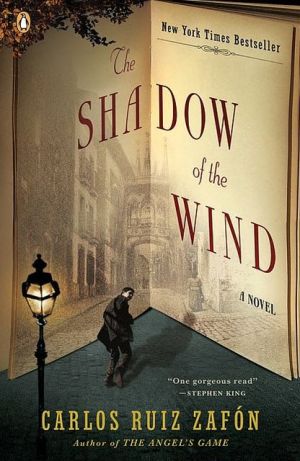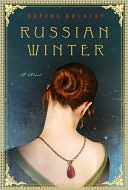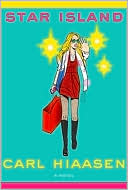Astrid and Veronika
With extraordinary emotional power, Linda Olsson’s stunningly well-crafted debut novel recounts the unusual and unexpected friendship that develops between two women. Veronika, a young writer from New Zealand, rents a house in a small Swedish village as she tries to come to terms with a recent tragedy while also finishing a novel. Her arrival is silently observed by Astrid, an older, reclusive neighbor who slowly becomes a presence in Veronika’s life, offering comfort in the form of...
Search in google:
With extraordinary emotional power, Linda Olsson's stunningly well-crafted debut novel recounts the unusual and unexpected friendship that develops between two women. Veronika, a young writer from New Zealand, rents a house in a small Swedish village as she tries to come to terms with a recent tragedy while also finishing a novel. Her arrival is silently observed by Astrid, an older, reclusive neighbor who slowly becomes a presence in Veronika's life, offering comfort in the form of companionship and lovingly prepared home-cooked meals. Set against a haunting Swedish landscape, Astrid & Veronika is a lyrical and meditative novel of love and loss, and a story that will remain with readers long after the characters' secrets are revealed.The New York Times - Ann HarlemanLinked at first by mere accident Veronika falls ill, and Astrid finds her and cares for her the two women gradually begin to confide in each other. Unlike the voice of the novel s omniscient narrator, theirs are natural and vivid, utterly convincing. And unlike the novel s flatly depicted present, the physical world of the past, in which their stories take place, generously opens to admit us.
\ Ann HarlemanLinked at first by mere accident — Veronika falls ill, and Astrid finds her and cares for her — the two women gradually begin to confide in each other. Unlike the voice of the novel’s omniscient narrator, theirs are natural and vivid, utterly convincing. And unlike the novel’s flatly depicted present, the physical world of the past, in which their stories take place, generously opens to admit us.\ — The New York Times\ \ \ \ \ Publishers WeeklyIn Swedish novelist Olsson's somber debut, Veronika Bergman returns to Sweden after a childhood following her diplomat father around the world (her mother abandoned the family), and after publishing her first novel titled Single, One Way, No Luggage. She rents a small house in a rural town to work on her second, but in solitude finds herself seized by feverish dreams and paralyzed by the "stillness" of the landscape and the memories of her recently dead fiancé. Reclusive septuagenarian Astrid Mattson, thought by the village to be a witch, takes an interest in Veronika, and the two strike up a friendship based on loss. Against the backdrop of the changing seasons and their small, plangent houses, the two women slowly tell each other their most closely guarded secrets (which concern their mothers and lovers), and venture, tentatively, out of the safety of their routines. Olsson has a clear feel for the emotional wellsprings of both characters, but can't convert her terse lyricism into a fully realized story. (Mar.)\ Copyright 2006 Reed Business Information.\ \ \ Kirkus ReviewsTwo women, four decades apart in age, share their emotional scars while living next door to each other in a small Swedish town. Olsson's restrained debut has the hallmarks of an Ingmar Bergman film: a leisurely pace, a chilly Scandinavian setting leavened by rich observations of nature and characters whose prim, polite facades eventually disappear, exposing years of anger and hurt. Veronika, a 30-year-old writer, arrives in a tiny village looking for a solitary place where she can work on the follow-up to her successful first novel. The house next to the one she rents is owned by Astrid, a septuagenarian shut-in whose husband is slowly dying in a nursing home miles away. Veronika is sad and embittered, Astrid is so closed-off she has a reputation as the village witch, but as their routines increasingly intersect, their relationship thaws, and they become close friends. Over dinners, hikes and trips into town, they discuss the things that prompted them to seclude themselves. By and large, those things are men: Astrid was cruelly rejected by her grandfather as a child, her true love died when she was a teen, and she spent years in a loveless marriage to a domineering man; Veronika left her boyfriend in Stockholm to live with another man in New Zealand, but that relationship had a tragic ending. It's a story with lots of potential to become overwrought, three-hanky fare, but Olsson refuses to give in to that temptation. Her prose is empathetic while remaining steely and unadorned, never overselling the amount of psychic damage that either character has sustained or glossing over the women's flaws. While the plot demands that the conclusion offer some familiar statements about our capacity toheal, Olsson's observations about breakups and dysfunctional families are carefully thought out and free of cliche. The slow pace is sometimes maddening, but it places the women's personal dramas in strong relief. An appealing, if oddly stoic, meditation on friendship.\ \








